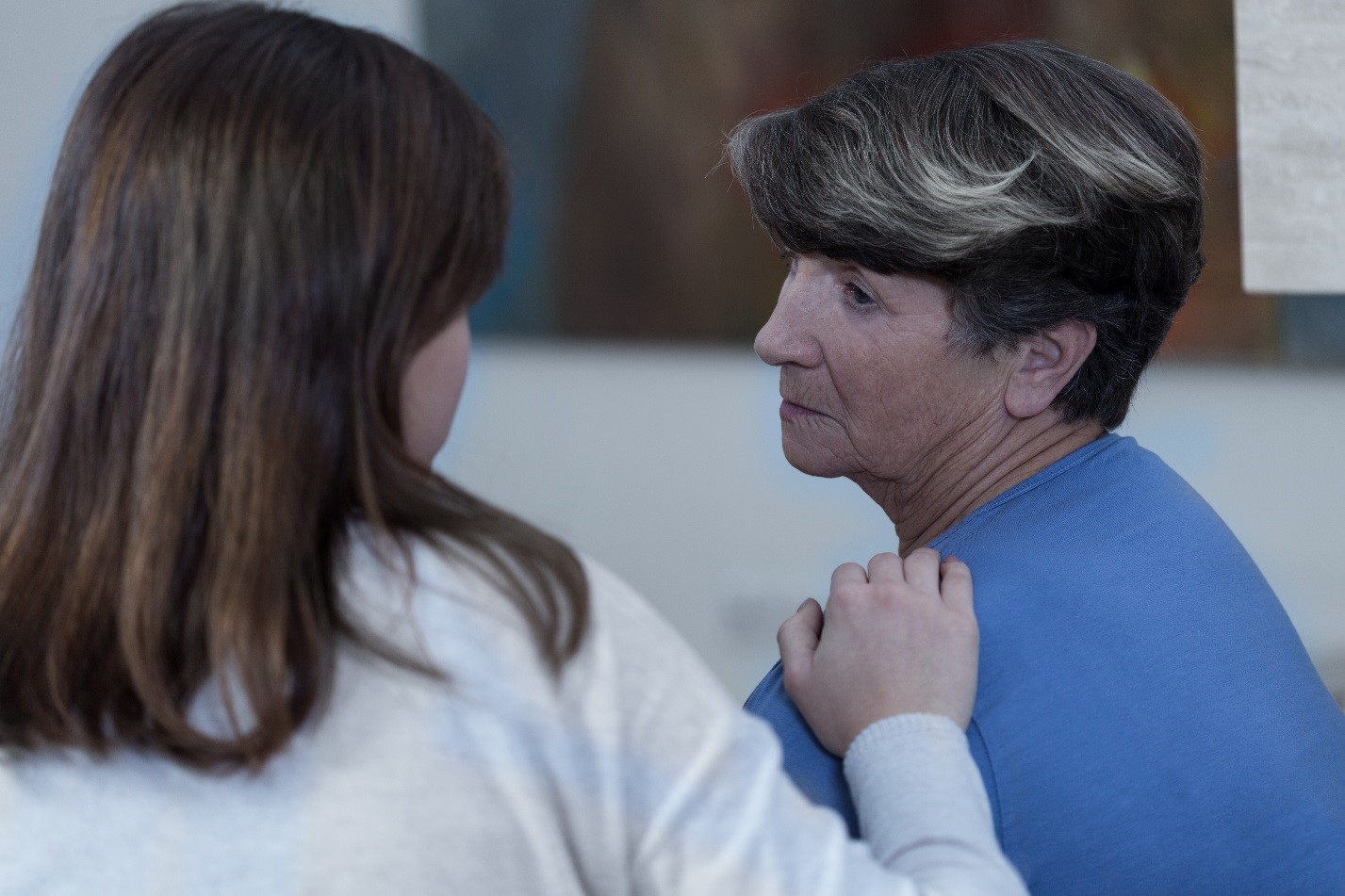During the month of October, we observe Domestic Violence Awareness Month. Originally intended to help connect advocates across the nation who work to end violence against women and their children, the observance now focuses on mourning those who have died because of interpersonal violence, celebrating those who have survived interpersonal violence and connecting those who work to end interpersonal violence.
I know someone who is struggling with interpersonal violence. How can I help?
Jessica Loftus, LICSW, is the Passageway Community Program Manager at Brigham and Women’s Faulkner Hospital. She says, “It can be hard to know what to do when you think someone you know might be struggling with these issues, but there are things we can do to support of our patients, co-workers and friends and family members who need help.”
Below she outlines some ideas:
How to help your patients
- Be non-judgmental and listen to your patient’s stories.
- Provide normalizing information and education. You can say things like, “I ask all of my patients about their safety and their relationships” or “Many people I see have experienced controlling or fearful dynamics with a partner” or “We have free, confidential support available here at the hospital” or simply “You are not alone.”
- Refer patients to BWFH’s Passageway Program by paging 39342 for an immediate response.
- Never worry alone. The Passageway Program provides case consultation, technical assistance and trauma-informed guidance for providers.
How to help your co-workers
- Express concern and offer your support without judgment.
- Never tell someone what to do. Interpersonal violence is about control and even the most well-intentioned advice can replicate feelings of being controlled by an abusive partner.
- Seek support and guidance from the Passageway Program or Partners Employee Assistance Program (EAP).
- Let your co-worker know that there are free, confidential and voluntary resources available, including the Passageway Program and EAP.
How to help friends and loved ones
- Listen and believe them.
- Ask how you can be helpful and supportive.
- Understand that your idea of what “needs to happen” may be very different from your loved one’s (e.g., you might want them to seek a divorce but they might not be ready to end their partnership; you might want them to get a restraining order but they know that taking that step may be risky or escalate the situation).
- Tell them it’s not their fault and no one deserves to be abused.
- Give them information about the Passageway Program or direct them org for help finding resources in their community.
More ways to help stop interpersonal violence
- Support your local domestic violence program.
- Learn about and talk about healthy, unhealthy and abusive relationships with your children and family.
- Support the reauthorization of VAWA (Violence Against Women Act, a federal act which expires on December 7, 2018).
For more information on interpersonal violence and how you can help, contact Jessica Loftus, LICSW, Brigham and Women’s Faulkner Hospital’s Passageway Community Program Manager at 617-983-7854.
